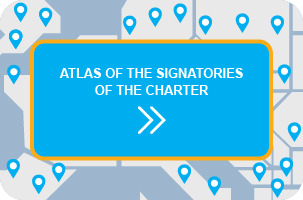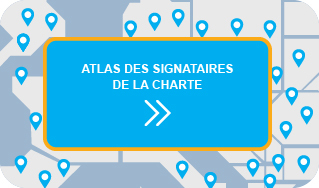Why sign the Charter?
The European Charter for Equality of Women and Men in Local Life is addressed to the local and regional governments of Europe, who are invited to sign it, to make a formal public commitment to the principle of equality of women and men, and to implement, within their territory, the commitments set out within the Charter.
Equality of women and men constitutes a fundamental right for all, and an essential value for every democracy. In order to be achieved, this right needs not only to be legally recognised, but to be efficiently applied to all aspects of life: political, economic, social and cultural.
As the spheres of governance closest to the people, local and regional governments represent the levels best placed to combat the persistence and the reproduction of inequalities, and to promote a truly egalitarian society. They can, through their competences, and through cooperation with the whole range of local actors, undertake concrete actions in favour of equality of women and men.
How to sign the Charter?
Each Signatory shall inform the Council of European Municipalities and Regions in writing of the fact that it has signed the Charter, indicating the date thereof, along with a contact point for future cooperation relating to the Charter and its implementation. The completed and signed Charter form should be sent to the Secretariat of the Observatory at the following address:
Council of European Municipalities and Regions (CEMR)
Square De Meeûs 1
1000 Brussels
Belgium
Scanned copies should be sent to charter@ccre-cemr.org
Signatories are also encouraged to inform the national coordinator in their country of the signature of the Charter.
And what happens next?
You will receive an e-mail from the Secretariat of the Observatory to acknowledge the receipt of the signed Charter form from your local/regional authority, who will then be formally recognised as a Signatory of the Charter.
In this email, you will get a username and a password that will allow you to upload your Signatory form, and eventually you equality action plan, to the online Atlas. This form is presented like a questionnaire inviting you to share general information about your local/regional authority and information about the actions that you have already carried out in the field of equality between women and men.
The Atlas of Signatories of the Charter is a tool that for identifying signatories, their action plans and good practices. Being present in the Atlas allows you to increase visibility of your local/regional authority at European level, to disseminate and promote your actions on equality between women and men. You can also learn from good practices carried out by your European neighbours. The objective of this tool is to facilitate exchange between signatories and to encourage the development of decentralised cooperation and twinning projects in the field of equality between women and men.
Signing the Charter: what does it mean concretely?
The Signatory undertakes to implement the provisions of the Charter by carrying out the following specific steps:
- Each Signatory to this Charter shall, within a reasonable timescale following the date of its signature (not to exceed two years), develop an adopt an Equality Action Plan, to be implemented thereafter.
- The Equality Action Plan shall lay out the Signatory’s objectives and priorities, any measures it plans to take and the resources to be allocated to bring the Charter and its commitments into effect. The Plan shall also specify the proposed timescales for implementation. In the event that a Signatory already has an Equality Action Plan, the Plan shall be reviewed to ensure that it addresses the pertinent issues covered by this Charter, including those included in articles 31-39 which were added in 2022.
- Each Signatory shall consult widely with relevant stakeholders before adopting its Equality Action Plan and shall then disseminate it widely once it has done so. It shall also release regular public progress reports regarding the Plan’s implementation.
- Each Signatory shall revise its Equality Action Plan as circumstances require and shall draw up a further Plan for each subsequent period.
- Each Signatory undertakes in principle to assist in the monitoring of the Charter’s implementation progress by cooperating under a system of evaluation that uses the indicators developed for this purpose, and to promote peer learning among local and regional governments across Europe on effective means of achieving gender equality across their territories. Signatories shall make their Equality Action Plans and other relevant public materials available to this end.











